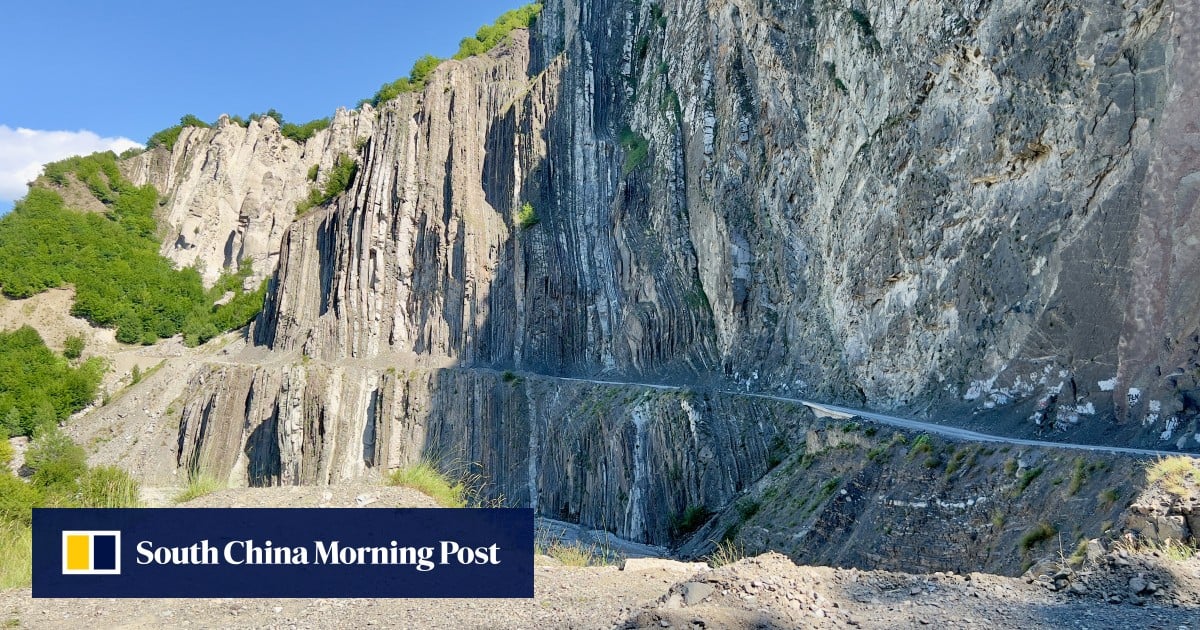There’s the added benefit of complete flexibility, especially when looking to book nothing in advance and to wander at will.
It is often the case that booking with a local car rental company on arrival is substantially cheaper than using the international franchises booked online from home.
But in some parts of the world, including many countries that, like Azerbaijan, were once part of the Soviet Union, caution is needed.
“Either,” I told my daughter as we waited on the pavement with our cases, “they won’t show up with the car, the car won’t be the one we ordered, or there’ll be surprise extra charges. Or both of the last two. And in fact the surprise will be if there aren’t any extra charges at all.”
But the car did appear and was quickly loaded up in the busy street before any passing policeman could take an interest in the contents of our wallets.
We drove off to find a parking place in which to do the paperwork.
Nobody cares about the rules. And aren’t you worried about getting lost?
The existence of paperwork was encouraging, as sometimes with local hires there isn’t even that.
As predicted, the vehicle was not one we’d ordered from a local website, but it was here, it sounded healthy, the price was right, and it was bigger and had higher clearance – which, given the reputedly rough state of Azerbaijan’s roads anywhere off the main highways, was a good thing.
The additional charges were a 10 manat (US$5.90) delivery fee, which was expected, and the news that if we didn’t clean the car ourselves, we’d have to pay 10 manat for that. There would also be a 50 manat charge for every chip in the paintwork. The delivery driver and I both danced around the car videoing every square inch.
Armenia, next great hiking destination, offers surprises and challenges
Armenia, next great hiking destination, offers surprises and challenges
A Baku travel agent had already warned us about Azerbaijani roads. “Nobody cares about the rules,” she said. “And aren’t you worried about getting lost?”
“I like getting lost,” I said. “It’s part of the fun.”
Nevertheless she pressed her mobile phone number on us, and insisted we call her if we encountered any difficulty. “No charge,” she added.
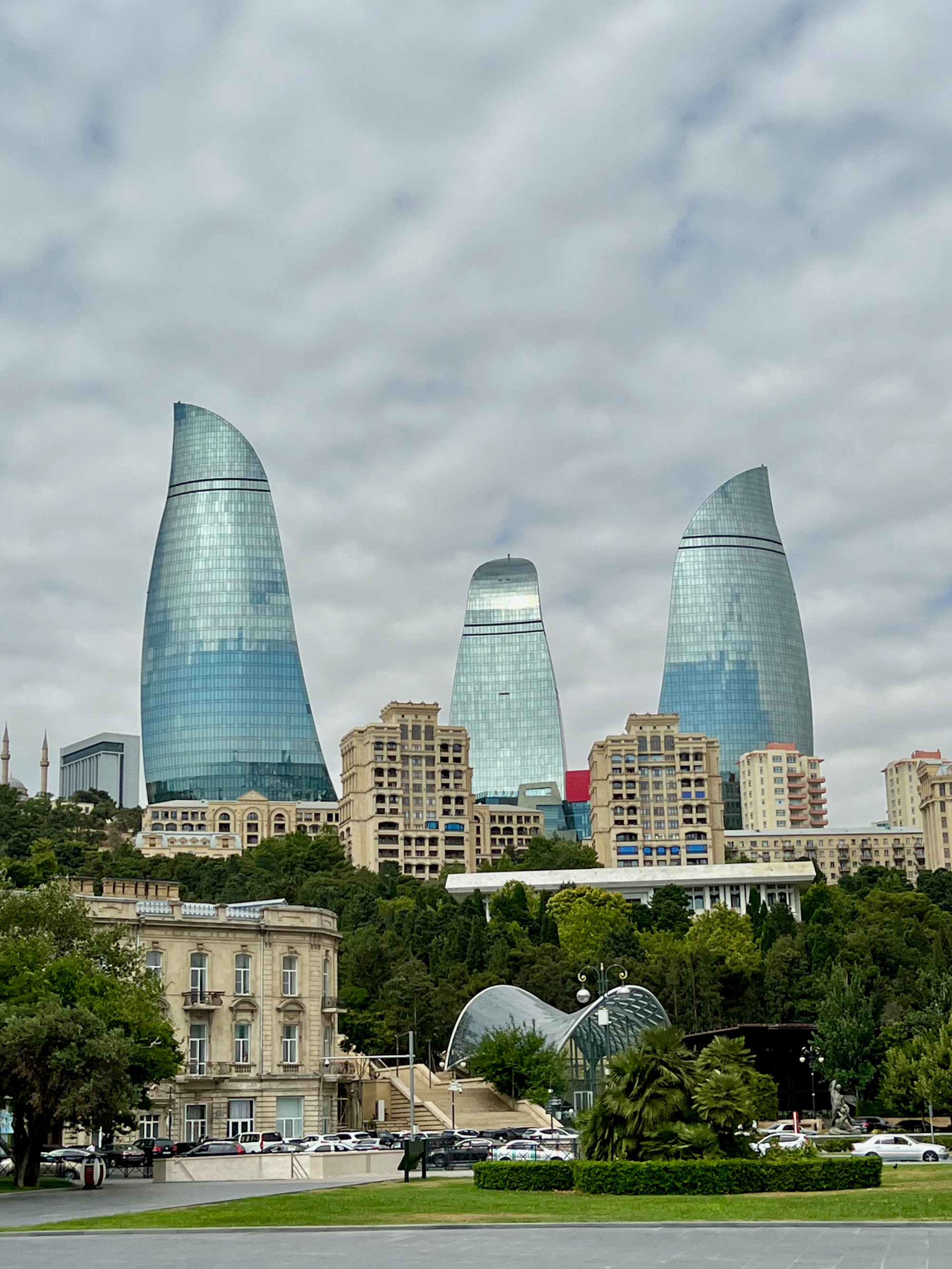
Our first problem, other than the general traffic chaos, was that the fuel tank was nearly empty.
We had been given a list of reliable state-run oil companies and told to buy petrol from them exclusively, but it was starting to look as if our journey would end while still on the fringes of Baku, so we pulled onto the forecourt of something that had sober signage but was not on the list, and hoped for the best.
We would buy just enough fuel to get us somewhere officially approved.
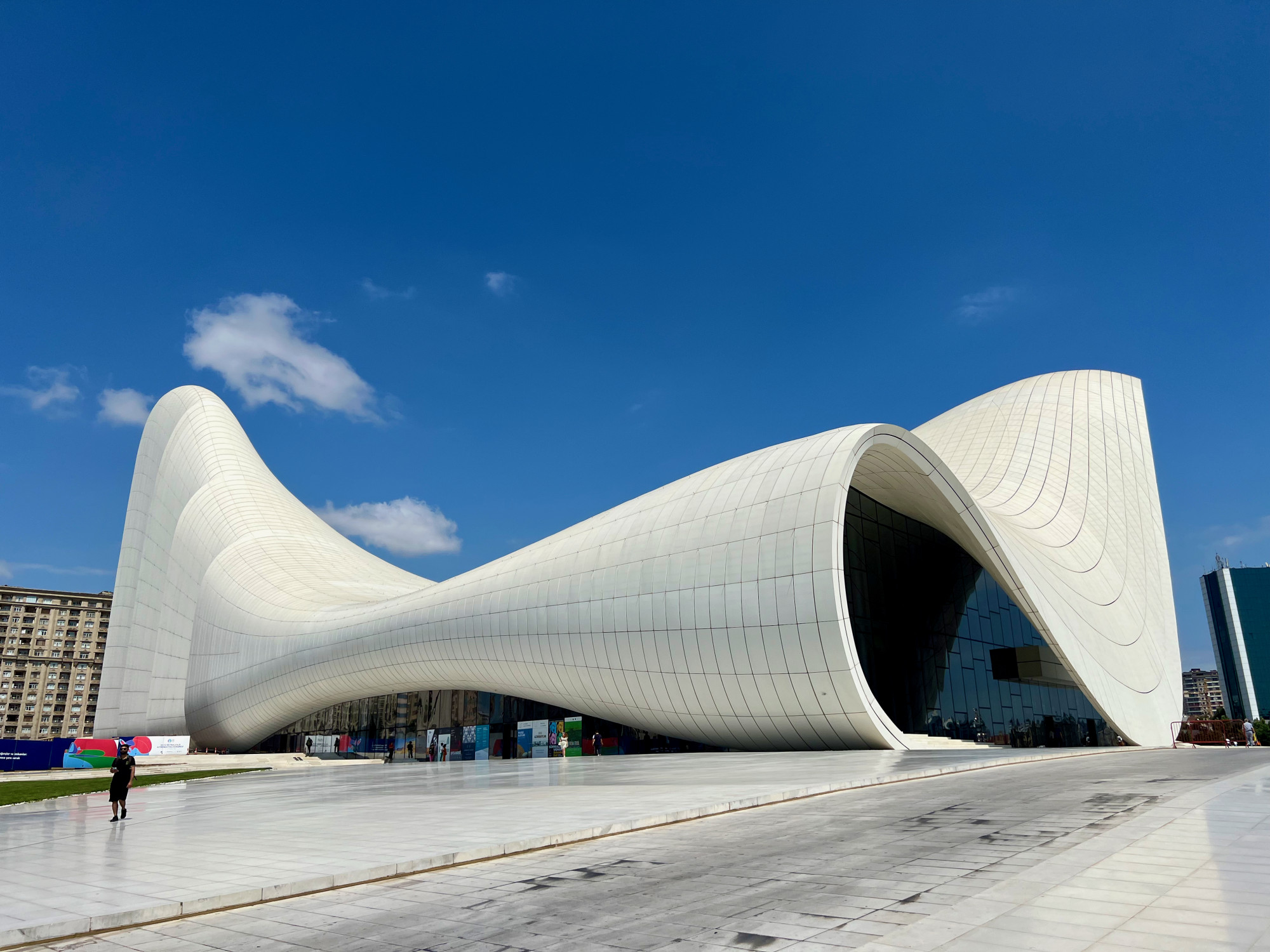
An intimidatingly burly man opened the door, reached down, and operated the fuel tank cover release himself.
I held up 10 fingers. “Ten litres,” I said.
His face showed disdain. “Ten litres you go where?” he sneered in a gravelly voice, unscrewing the petrol cap and reaching for the pump’s nozzle. “Why 10 litres?”
My Azerbaijani was limited to çox saǧ ol, which means “thank you very much”, and was certainly not up to, “We’re buying as little of your fuel as we can for we fear it may be of a lower quality” – not that it would have been wise to say that.
We noticed that, despite a general lawlessness about other rules of the road, speed limits were generally observed. In fact the standard speed was a cautious 10km/h (6mph) lower than any limit in operation. Radar cameras were frequent, and policemen even more so.
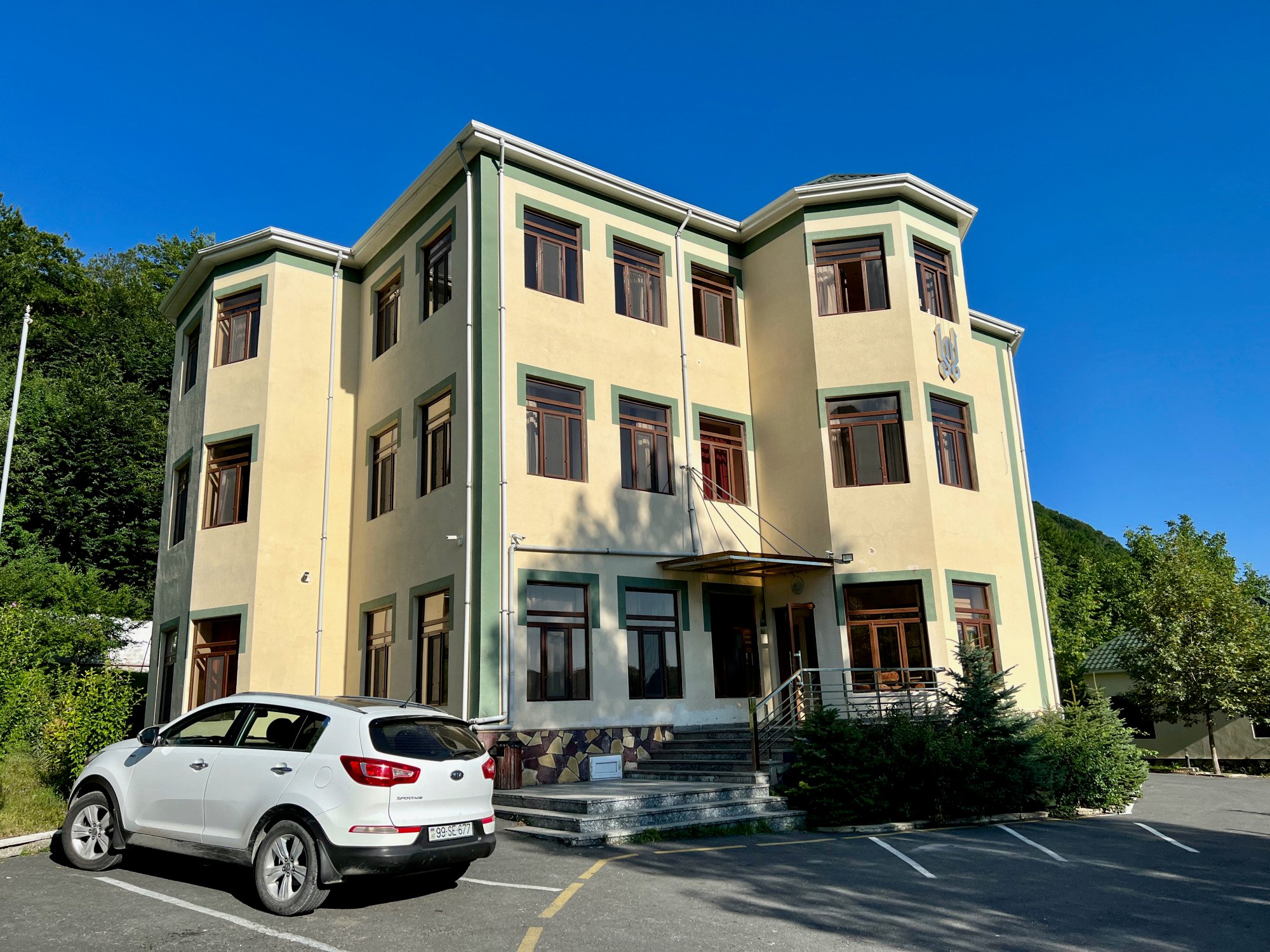
We were pulled over at a checkpoint, and a good-looking, smartly uniformed young man proffered a hand through the window for a good-natured handshake. It went downhill from there.
He made me blow into a breathalyser, which, as it was only 11am, either told you something about the nature of post-Soviet Azerbaijani society, or that we were about to be scammed.
“Passport!” he said. And indicated I should step out.
He began tapping away at his phone, eventually showing me, through a translation app, “You must pay 100 manat”.
“What for?” I asked.
Tap tap tap tap tap. “You have broken the regulations.”
“What regulations?”
Tap tap tap tap tap. “If you pay 50 manat I can delete the record.”
He wants to tell you that you were driving in the truck lane, for which you must pay 100 manat (US$59), and then another 100 manat
“No,” I said, and waited to see what he would do. He handed back my passport. “Go,” he said.
Beyond the Baku suburbs, the scenery became starkly arid until the road climbed steadily into the Greater Caucasus Mountains, eventually past pine plantations and up into ever greener areas.
“Are we going up to Lahic?” asked my daughter. Lahic is a historic mountain village with a faintly Nepalese look, mentioned in guidebooks.
“Unless the road becomes too interesting,” I said.
“What do you mean by too interesting?”
An hour later we came to a place where most of the road had fallen into the valley below.
“This,” I said, “is too interesting”.
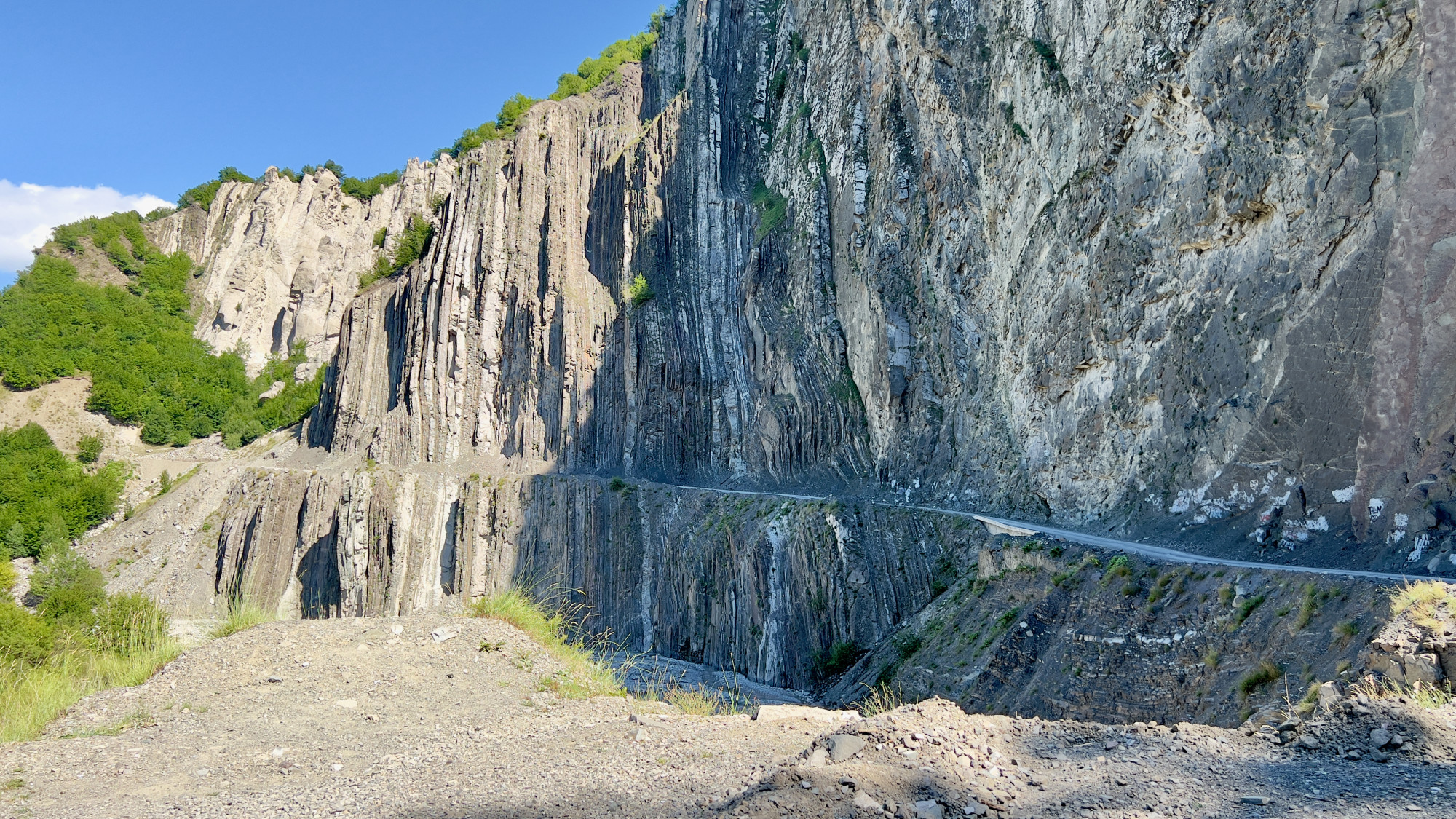
We skirted around the collapse and charged up a section of loose scree where the surface had disappeared.
“Fifty manat per paintwork chip,” I thought. “It’s going to be an expensive trip.”
Mountain resort hotels of rumoured glamour also proved to be up inappropriately narrow and steep unmade roads, which became too interesting rather too late to turn back, and were too narrow for turning round.
The other hazard, in addition to every other driver, was cows, which roamed freely on even the country’s best highways, willing to stare drivers down with a curious mixture of indolence and insolence.
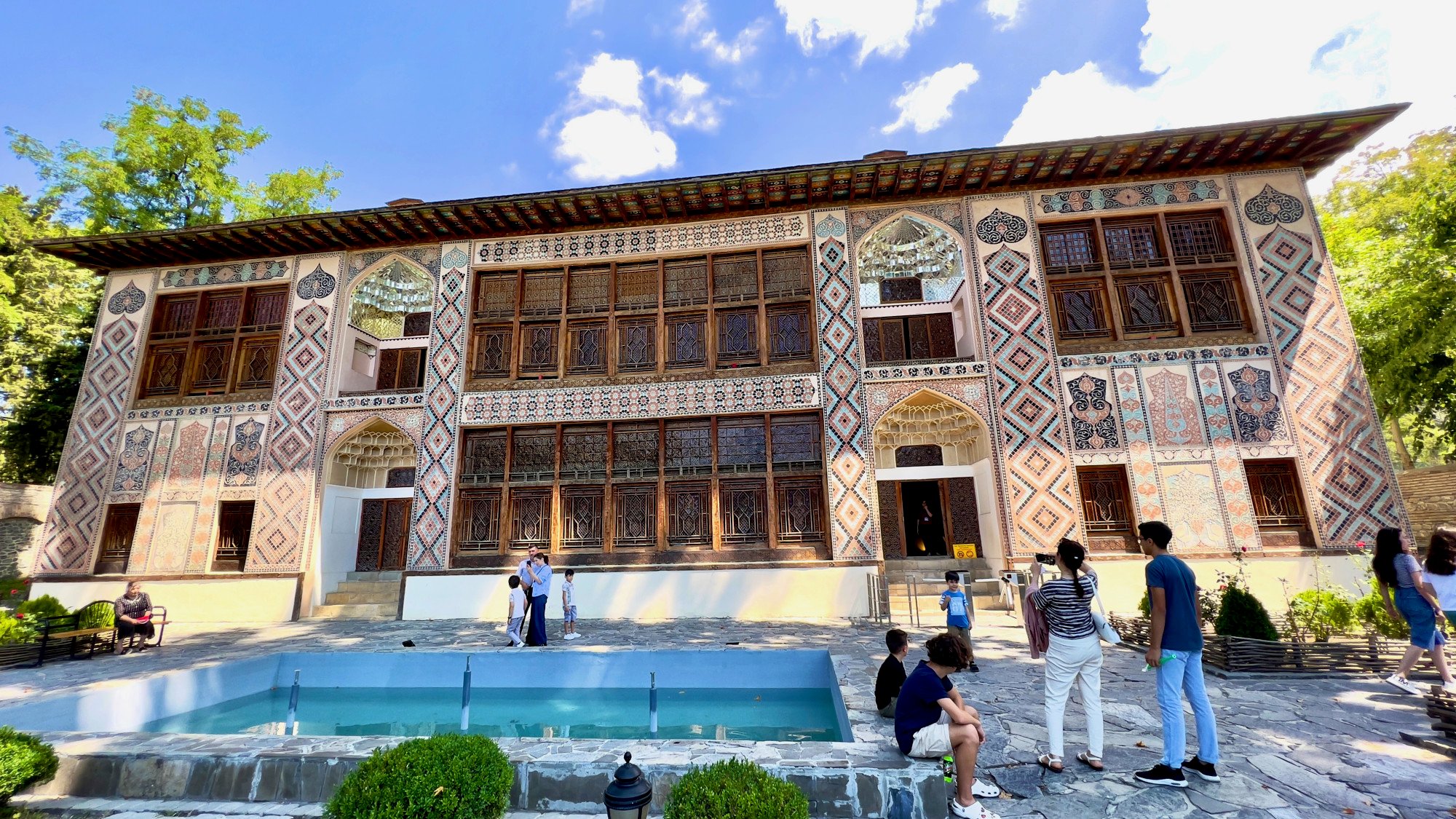
On the third day, having visited Sheki in the far west of the small country for the marvellous Palace of the Sheki Khans – all mosaics, painted plasterwork and stained glass in dizzying patterns – we were flagged down by a policeman again, and once more greeted pleasantly with a warm handshake. This was followed by a long stream of Azerbaijani.
“I don’t understand,” I said.
He walked to the front of the car, scanned the plate, then came back and showed me a screen full of text.
“I don’t understand,” I said again.
“Rental car?”
“Yes.”
He produced a second phone, dialled a number, spoke into it at length, and then handed it to me.
“He wants to tell you,” said a voice, “that you were driving in the truck lane, for which you must pay 100 manat, and then another 100 manat.”
“The officer is mistaken,” I said, “and I’m not paying any manat whatsoever to anyone at all.”
I handed the phone back, and the policeman listened for a moment.
“Go,” he said.
In Stalin’s footsteps in Georgia, from his birthplace to his bath
In Stalin’s footsteps in Georgia, from his birthplace to his bath
The return of the vehicle at Baku airport proved surprisingly easy, the driver happily departing with the cleaning fee and nothing else. Altogether the rental had cost only about half the rate requested by the big names.
The rules of the road might have been understood more as guidelines, but the hazards of driving in Azerbaijan were principally potholes and the police, worth braving for the pleasures of scenery, historic towns and frequently encountered warm welcomes.
